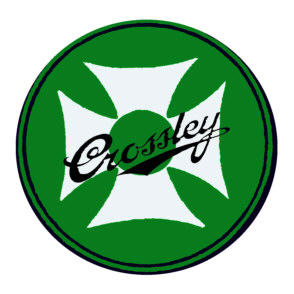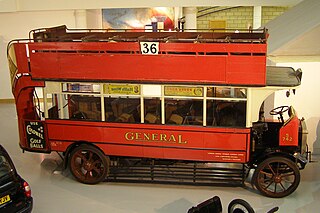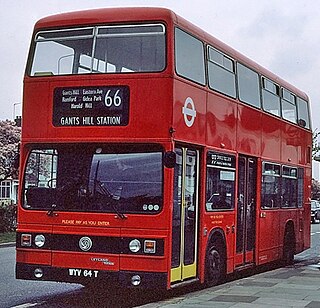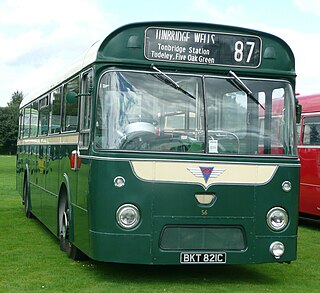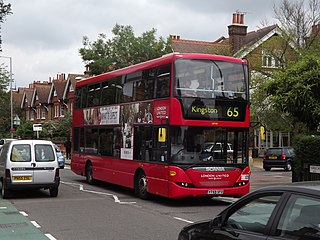| AEC T-type | |
|---|---|
| Body and chassis | |
| Floor type | Step entrance |
The AEC T-type was an attempt in 1920 by AEC to create a bus with a greater seating capacity for use in London.

Associated Equipment Company (AEC) was an English vehicle manufacturer that built buses, motorcoaches and trucks from 1912 until 1979. The name Associated Equipment Company was hardly ever used; instead it traded under the AEC and ACLO brands.

A bus is a road vehicle designed to carry many passengers. Buses can have a capacity as high as 300 passengers. The most common type of bus is the single-deck rigid bus, with larger loads carried by double-decker and articulated buses, and smaller loads carried by midibuses and minibuses; coaches are used for longer-distance services. Many types of buses, such as city transit buses and inter-city coaches, charge a fare. Other types, such as elementary or secondary school buses or shuttle buses within a post-secondary education campus do not charge a fare. In many jurisdictions, bus drivers require a special licence above and beyond a regular driver's licence.

Seating capacity is the number of people who can be seated in a specific space, in terms of both the physical space available, and limitations set by law. Seating capacity can be used in the description of anything ranging from an automobile that seats two to a stadium that seats hundreds of thousands of people. The largest sporting venue in the world, the Indianapolis Motor Speedway, has a permanent seating capacity for more than 235,000 people and infield seating that raises capacity to an approximate 400,000.
The T-type was essentially an AEC K-type stretched in length by 2 ft 3 in (0.69 m), with the front axle moved rearward. This gave the vehicle a somewhat awkward appearance. The length was outside the then-permitted dimensions for buses in London. Only one vehicle was built, and was it used in trial service in London during early 1920. Following the trials, the permitted length was increased, and the AEC S-type was developed.
The AEC K-type was a type of bus chassis built by Associated Equipment Company (AEC) from 1919 until 1926, mainly for use in London by the London General Omnibus Company (LGOC).
